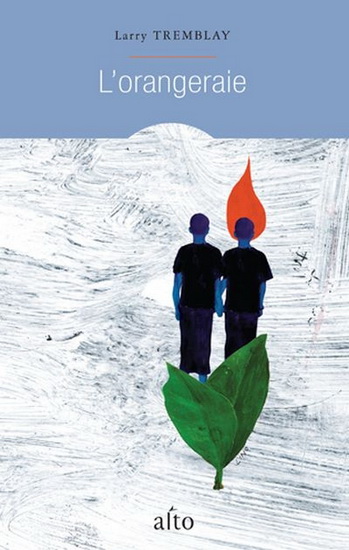A touching war story, an inspiring self-love book and a guide to not giving a f*ck
L’Orangeraie- Larry Tremblay

Larry Tremblay’s French-language book is more than just a novel about war and terrorism–L’Orangeraie is a story about faith and commitment.
The story follows two children, Ahmed and Aziz. For the twins, the same religion that taught them how to love, will tear them apart. While their native land is being bombarded, a mysterious man approaches the family with an uncanny decision: one brother will have to sacrifice his life for Allah.
This book is an amazing reflection on war from a child’s perspective. The author addresses timely topics such as terrorism, suicide bombers and love with nuance and delicacy. Tremblay does so without falling into heavy melancholy. L’Orangeraie is the kind of book that leaves you speechless. This ethic drama will easily tear at the core of your morality.
While this book is available in English, I recommend reading it in French. This fictitious story takes place in the Middle East, in a region with a French colonial background. Reading the novel in French will make you feel closer to the characters, while giving the whole story more realism.
By Sandrine Pelletier
The Mastery of Love– Don Miguel Ruiz
The Mastery of Love, by Don Miguel Ruiz, is a self-help book that centres on human relationships. The book explores how humans possess certain fears and assumptions that undermine their ability to love themselves and those around them.
When my friend lent me this book, I was skeptical and unsure about the insight it would give me. I was wrong—I completely adored this book. The author really knows how to convey his message through a personalized vocabulary that made me feel comfortable and serene. Ruiz’s writing is straight-forward and educational. He has this ability to show compassion and love towards the reader. His analogies were helpful, enabling me to reflect on my life and surroundings.
I highly recommend this book to everyone. It alleviated some of my personal fears about self-consciousness, social pressure, love and expectations. Ruiz is excellent at making you look at yourself and your loved ones throughout a brighter lens.
By Mina Mazumder
The Subtle Art of Not Giving a F*ck– Mark Manson
This gem is the antihero of the self-help section. In a charmingly crude manner, Mark Manson sheds light on something he believes is holding us all back in life: giving too many f*cks about the wrong things. Manson breaks down certain life situations, social constructs and behaviours people get wrapped up in, to show us how toxic we can be to ourselves. The writing style of the book is concise, raw and humourous. In just under 200 pages, Manson reminds you to pick your battles, that you’re not special and that mortality is inevitable. This book is the perfect light read to help you keep yourself in check. The Subtle Art of Not Giving a F*ck is a tough-love friend that you can conveniently carry around in your bag.
By Danielle Gasher